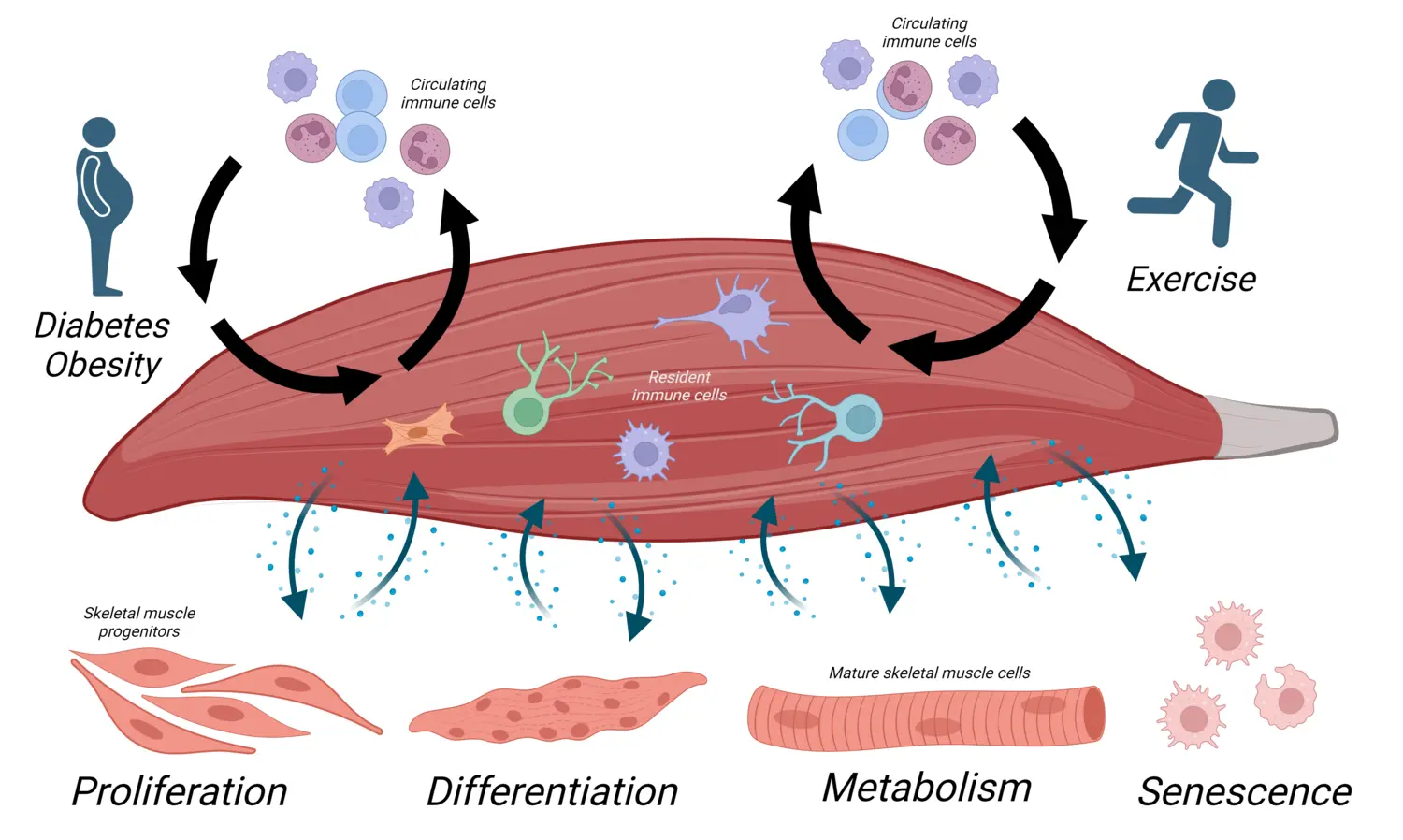Divergent inflammatory responses in skeletal muscle: contributions to physical activity and metabolic diseases.
Are you aware that your immune system plays a crucial role in how your body reacts to exercise and diet? Whether it’s the muscle soreness after a rigorous workout or the diminished insulin sensitivity observed in type 2 diabetes, the immune system is central to these processes.
Our research team precisely aims to investigate the communications between skeletal muscle and the immune system under conditions of metabolic stress. Our primary objective is to understand how these interactions affect the development and progression of metabolic diseases, with an emphasis on type 2 diabetes.
We use advanced bioinformatic techniques to identify molecular responses of skeletal muscle to both exercise and diabetes-related stress. This includes the characterization of cytokines and other soluble factors released by inflamed skeletal muscle, which may influence systemic metabolic health. We grow skeletal muscle progenitors from human volunteers to characterize molecular responses in vitro using diverse combinations of metabolic assays, pharmacological approaches, and molecular bioengineering methods. Our close relationship with clinical researchers allows us to perform clinical physiology assessments, that help explore the functional implications of these findings on muscle and whole-body metabolism in humans.
By advancing our understanding of inflammatory mechanisms within skeletal muscle, we hope that our finding will translate into practical interventions that can be applied clinically to improve the metabolic health of individuals at risk of or suffering from type 2 diabetes and related metabolic conditions.

Figure. Cross-talks between skeletal muscle and the immune system regulate metabolic inflammation and muscle remodelling.
Molecules released by either immune cells or myocytes during exercise, obesity or type 2 diabetes are crucial to maintaining tissue homeostasis. Understanding the roles and mechanisms of action of soluble molecules on inflammatory pathways and tissue remodelling can open new perspectives for improving metabolic health.

